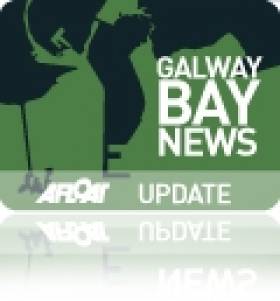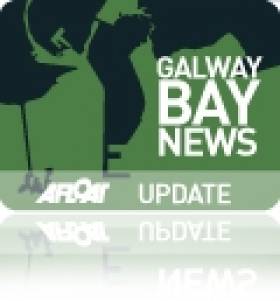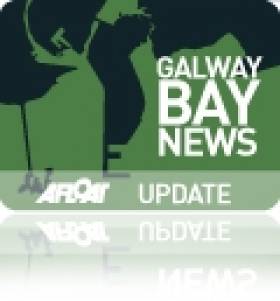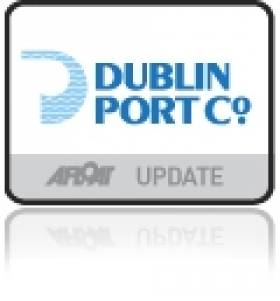Displaying items by tag: Port Expansion
Galway Harbour CEO Cites Port’s Redevelopment Necessary to Stop Decline
#Redevelopment - Galway Harbour could face terminal decline unless a proposed €126m redevelopment is given the go ahead, a full oral hearing was told of about the project, reports yesterday's Irish Times.
The CEO of Galway Harbour, Eamon Bradshaw, told the An Bord Pleanála hearing that ships are sometimes left sitting off Mutton Island for long periods because the current port was effectively only open for four hours during any 24-hour cycle.
Mr Bradshaw pointed out that the new national ports policy identified the harbour as a strategic regional hub for petroleum, while its current location close to the city centre limited its potential for further expansion. The proposed redevelopment will also allow the port to accommodate cruise ships.
Mr Bradshaw said the board of Galway Harbour was obliged to look at the future of the port as a commercial entity capable of servicing the western region.
"The alternative was to see the port decline and with it the possible disappearance of a tradition of commercial trading from Galway going back over a 1,000 years," he told the hearing.
Harbour master Brian Sheridan said Galway Harbour Company was advised as far back as October 2000 that trade would go into decline over 25 years without a process of relocating and upgrading.
"The operation of the harbour as it currently exists has become increasingly difficult over the past decade," Mr Sheridan said. "This is largely due to the size of ships now calling at Galway. On a number of occasions, I have had to deny access of ships which I considered too large for the port, as the risk to the marine environment and public safety was too great."
Captain Sheridan said the proposed relocation of an oil jetty would resolve risk and related planning issues: "For reasons of public health and safety, the relocation of the commercial business is imperative."
The newspaper has much more to report, click HERE.
In addition a photograph of cargoship,Thior Gitta which Afloat.ie reported on her departure from Galway Port in 2011 for Mauritius. She was loaded with a pair of former Aran Islands sister ferries, that were beset by incidents prior to the 8,300 mile delivery voyage to the Indian Ocean, to where they serve new owners.
An Bord Pleanála Hearing Opens into Galway Harbour Port Plans
#PortHearing- An Bord Pleanála is to open an oral hearing today, writes The Irish Times, into the first phase of a €126m expansion of Galway Harbour that aims to provide cruise liner berths, a marina and potential “mini Sydney opera house” if approved.
As previously reported on Afloat.ie, a preliminary hearing took place last week prior to today’s start of An Bord Plenaeála hearing on the four-phase port extension plan. The plan would involve reclaiming 27 hectares of environmentally sensitive bay area to move the existing port south and provide deepwater berths.
The harbour company said it has consulted with the European Commission on invoking a clause under the EU habitats directive which involves offering compensation for loss of fragile environment. The IROPI (imperative reasons of overriding public interest) provision under article 6 (4) of the EU habitats directive was first used to seek approval for a motorway in Hessen, Germany.
For more on this story (click HERE) which refers to Shannon-Foynes Port Company, one of those who have registered its opposition to the neighbouring mid-west’s port exansion plan.
Hearing Into Galway Harbour’s Proposed Expansion
#PortExpansion - Two hundred jobs would be created say the Galway Harbour Company during construction of an expanded port, reports RTE News.
A preliminary hearing into a proposed expansion of the port has been taking place ahead of the full An Bord Pleanála oral hearing. The development, which has been planned for many years, would cost €126m.
The full hearing will begin in Galway next week and is expected to take around three weeks to complete. For more on this story, click HERE.
Plans Unveiled for Dublin Port Expansion
#DublinPortExpansion – The Irish Times writes that Dublin Port plans for a €200m expansion and redevelopment of a large section of the port and deepening navigation channel for bigger container and cruise ships was outlined at a planning hearing yesterday.
The development is phase one of the Dublin Port Company's masterplan to more than double its throughput from about 29 million tonnes in 2013 to 60 million tonnes in 2040.
The work does not include infilling of Dublin Bay, such as the plan to reclaim about 52 ares in the vicinity of Clontarf Yacht Club which was turned down by An Bord Pleanala in 2010.
Presenting the plan at a Bord Pleanála hearing yesterday Dublin Port Company chief executive Eamonn O'Reilly said the proposed phase of redevelopment would concentrate on the Alexandra Basin area in the north port.
Further coverage of port plans can be read here.
































































